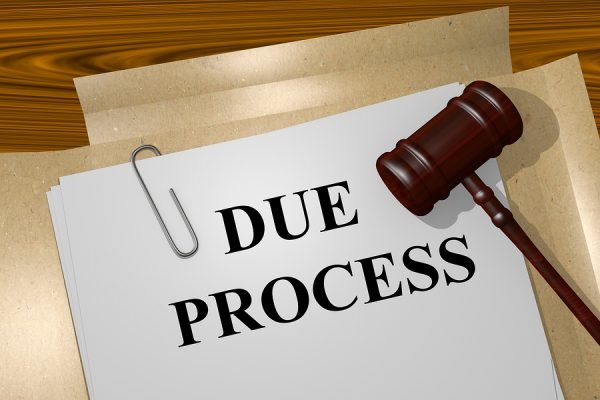
When you file your Trust or Will lawsuit in court, you may know you are right and the other side is wrong, and you put all your facts in your pleading, so why can’t the court just make a decision right away? Instead, your Probate petition or Trust or Will lawsuit is set for an initial hearing that is continued by the Court, and then continued again and again while the parties conduct discovery, bring motions, and generally squabble about everything. Finally, a trial date is set and your matter gets its day in Court, assuming you have not reached a settlement by that point.
The U.S. and California Constitutions are the main reason for these seemingly endless delays until a decision is finally reached in your case. In particular, it’s the Constitutional right to due process that requires the court to conduct an evidentiary trial before making a forced decision. When our rights are at issue, the court must take into account the evidence of each party, weigh that evidence, and then come to a decision. That process of hearing and then weighing evidence is trial. In most Trust and Will matters, trial takes place in front of a judge. But at times, such as when bringing a financial elder abuse claim, we can obtain a jury trial. In either case, a trial is required.
Keep in mind that the court has a massive docket of cases and most courts have dozens of cases set for hearing every day. There is precious little time for trials and courts are further burdened by the massive budget cuts that have occurred in the past two years. In Probate Court in particular the court usually only has time to hear trial in the afternoon since the morning session is used to hear the matters on calendar for that day. Which is why matters to be tried for longer periods of time are often transferred to other courtrooms in the civil department of the court.
Between your (and the other party’s) Constitutional right to due process and the court’s massive caseload, trying to get to trial can be a long journey.
Just remember as our own Stewart Albertson often says “litigation is a marathon, not a sprint.”
